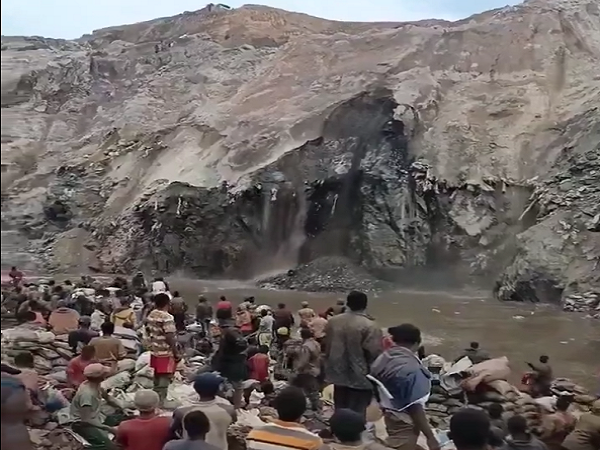A mountain collapse in the Katanga region of the Democratic Republic of Congo (DRC) has uncovered massive copper reserves, sparking discussions about resource exploitation, environmental impact, and the shadow of colonialism. Footage of the dramatic event has gone viral, with many online jokingly warning about the need to protect the newfound copper from foreign interests.
Independent Political Analyst Luchulumanco Mawisa weighed in on the incident and noted the broader implications for the DRC. “News is still coming in, but the DRC remains a humanitarian crisis in action. There are two main points of contention here: resource exploitation and environmental impact. The mere fact that the mountain collapsed suggests there are significant environmental issues, which affect both mining operations and human lives,” Mawisa explained. He highlighted the DRC’s wealth of natural resources, including copper, zinc, gold, silver, and uranium, stating that “the DRC is well endowed.”
Mawisa also pointed out the troubling global dynamics at play. “The collapse of this mountain brings smiles to the faces of global capital, yet the humanitarian crisis in the region remains largely ignored. If you’ve seen the video, you’ll notice crowds of people watching the collapse, which means they live dangerously close to the site. Their lives are essentially at risk now,” he said.
The conversation also turned to allegations about the Rwandan government’s role in arming the M23 rebels, who have significantly impacted the lives of civilians in the DRC. Many residents have been displaced, and some are forced into slave labour in mining operations. “There is clear evidence, including UN reports, showing that Rwanda is funding the M23 rebels, although Rwandan officials deny these claims. This stems from a 2009 agreement with the DRC government, which the rebels accused of breaching in 2012,” Mawisa added.
He stated that the plight of the DRC resonates across the entire continent. “The DRC’s struggles are, in many ways, South Africa’s struggles. If the DRC were allowed to thrive with stable governance and the freedom to engage in fair trade agreements with other nations, we might not have faced challenges like loadshedding.”
Listen to the full interview below:
VOC News
Photo: Screenshot









